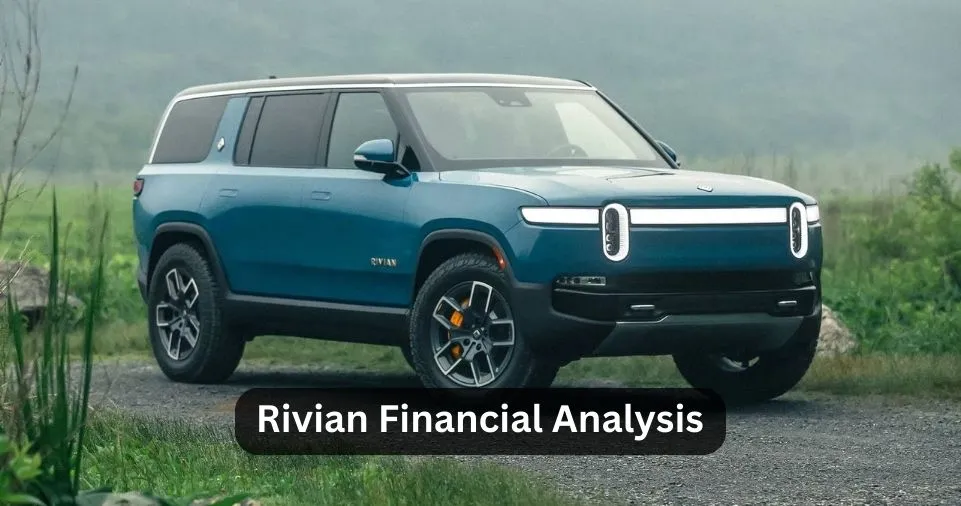Fintechzoom is a sophisticated platform that provides users with real-time data, insightful analysis, and in-depth coverage of various financial markets, including stocks, cryptocurrencies, and more.
It’s particularly beneficial for investors who seek accurate, up-to-date information to make well-informed decisions. One of the prominent stocks analyzed on Fintechzoom is Rivian Automotive Inc. (NASDAQ: RIVN), a leading contender in the electric vehicle (EV) industry.
Rivian has captured significant attention within the financial world, thanks to its innovative electric trucks and SUVs.
Today, at FintechZoom Blog, we will explore Rivian’s rise, analyze its financial performance, assess the stock’s recent trends, and offer insights into its future prospects.
The aim is to provide a detailed and accessible guide for potential investors considering Fintechzoom Rivian stock.
The Rise of Rivian: From Startup to Industry Leader
Founding and Early Vision
Rivian Automotive, Inc., founded in 2009 by Robert “RJ” Scaringe, emerged from humble beginnings with a grand vision: to revolutionize the automotive industry by producing sustainable, adventure-oriented electric vehicles.
Scaringe, an MIT graduate with a focus on sustainable transportation, aimed to create vehicles that would not only perform exceptionally well but also contribute to reducing the global carbon footprint.
In its early years, Rivian operated under the radar, focusing primarily on research and development.
The company was originally founded as Mainstream Motors before rebranding as Rivian in 2011, a name inspired by the Indian River in Florida, reflecting a commitment to environmental stewardship.
Rivian spent nearly a decade developing its electric vehicle platform before unveiling its first models in 2018: the R1T electric pickup truck and the R1S electric SUV.
Major Investments and Strategic Partnerships
Rivian’s journey from an unknown startup to a major player in the EV market was significantly accelerated by strategic investments and partnerships with industry giants.
The most notable of these partnerships was with Amazon, which not only invested in Rivian but also placed an order for 100,000 electric delivery vans.
This deal was pivotal in establishing Rivian’s credibility and bolstering its market presence.
Ford Motor Company also became a major investor, contributing to Rivian’s financial growth and providing strategic industry insights. These partnerships played a critical role in Rivian’s development and allowed the company to scale its operations rapidly.
In 2020, Rivian took a significant step forward by acquiring a manufacturing plant in Normal, Illinois.
This facility, a former Mitsubishi Motors factory, was repurposed to produce Rivian’s electric vehicles, marking a crucial phase in the company’s expansion strategy.
Rivian’s IPO and Market Valuation
Rivian made headlines in November 2021 with its highly anticipated initial public offering (IPO). The IPO was one of the largest in U.S. history, with the company initially valued at $90 billion.
This valuation reflected the high expectations for Rivian’s potential in the EV market and its perceived ability to challenge established players like Tesla.
The IPO was seen as a validation of Rivian’s business model, with the stock debuting at $78 per share and quickly rising by 21% within the first two days.
However, this early success was followed by volatility, reflecting the challenges of maintaining investor confidence in a rapidly evolving market.
Financial Analysis of Rivian Stock

Overview of Rivian’s Financial Journey
Since its IPO, Rivian’s financial performance has been under close scrutiny. The company has shown significant revenue growth, driven by increasing demand for its electric vehicles, but it has also faced substantial financial challenges, including high operating costs and significant net losses.
Rivian’s revenue grew dramatically from $20 million in 2021 to $1.05 billion in 2022.
This growth was largely due to the ramp-up in production and delivery of the R1T and R1S models, as well as the commencement of deliveries for the Amazon delivery vans.
However, despite this revenue growth, Rivian reported a net loss of $1.45 billion in the first quarter of 2024, with projected losses for the entire year expected to reach $2.7 billion.
Key Financial Metrics
Several key financial metrics provide insight into Rivian’s current financial health and potential future performance:
- Revenue Growth: Rivian’s revenue grew from $0.02 billion in 2021 to $1.05 billion in 2022. This exponential growth highlights the increasing demand for Rivian’s vehicles and the company’s ability to scale production.
- Net Losses: Despite the revenue growth, Rivian reported a significant net loss of $1.45 billion in Q1 2024. The company anticipates a total loss of $2.7 billion for the year, reflecting the high costs associated with scaling production and expanding its product lineup.
- Cash Reserves and Debt: Rivian currently holds a cash reserve of approximately $11.56 billion. These funds are being used to support the company’s expansion plans, including the development of new models and the scaling of production facilities. However, Rivian also has a debt burden of $4.45 billion, which could pose a risk if not managed effectively.
- Valuation Ratios: Rivian’s price-to-sales ratio stands at 85.51, significantly higher than many of its competitors, indicating that the stock is valued at a premium relative to its revenue. The Enterprise Value to EBITDA ratio is -21.14, suggesting that the company is currently valued higher than its earnings would justify.
Recent Stock Performance
Since its IPO, Rivian’s stock has experienced significant volatility. After debuting at $78 per share, the stock saw a sharp rise, followed by periods of decline.
As of mid-2024, Rivian’s stock price was trading at approximately $16.59, reflecting a decline of around 28.6% from the start of the year.
This volatility can be attributed to a variety of factors, including production challenges, supply chain issues, and broader market trends affecting the EV industry.
Performance of Rivian Stock on Fintechzoom
Post-IPO Performance
Following its IPO, Rivian’s stock has been a focal point for investors and market analysts alike.
The initial excitement around the stock was driven by Rivian’s potential to disrupt the automotive industry with its innovative electric vehicles.
However, the stock has also been subject to significant fluctuations, reflecting the inherent risks associated with investing in a relatively new company in a highly competitive market.
In the months following the IPO, Rivian’s stock experienced several sharp declines.
For example, in recent months, shares of Rivian Automotive returned -36.3%, highlighting the volatility and uncertainty surrounding the stock.
Despite these fluctuations, some analysts remain optimistic about Rivian’s long-term potential, particularly as the global demand for electric vehicles continues to grow.
Factors Influencing Rivian Stock
Several key factors influence Rivian’s stock performance, including:
- Production and Delivery: Rivian’s ability to scale production and meet delivery deadlines is crucial. Delays or issues in production can significantly impact investor confidence and stock prices.
- Strategic Partnerships: Rivian’s partnerships with Amazon and Ford are critical to its success. These partnerships provide not only financial backing but also strategic advantages in terms of market access and credibility.
- Market Trends: The overall demand for electric vehicles and the competitive landscape play a significant role in shaping Rivian’s stock performance. Rivian faces competition from established players like Tesla, as well as newer entrants like Lucid Motors and Nikola Corporation.
- Economic Conditions: Broader economic trends, such as interest rates and inflation, can also impact Rivian’s stock performance. Additionally, changes in government policies, such as EV incentives, can have a direct effect on the company’s sales and profitability.
- News and Speculation: Market rumors, news reports, and analyst predictions can cause short-term fluctuations in Rivian’s stock price. For example, announcements about new partnerships, product launches, or changes in production plans can lead to significant movements in the stock price.
Stock Price History
To provide context for Rivian’s recent performance, here is a summary of the stock’s price history for the past year:
| Date | Open | High | Low | Close | Volume |
|---|---|---|---|---|---|
| 07/18/2024 | 17.19 | 17.27 | 16.77 | 16.90 | 21,654,300 |
| 07/17/2024 | 17.75 | 17.86 | 17.16 | 17.19 | 24,367,100 |
| 07/16/2024 | 18.20 | 18.28 | 17.55 | 17.75 | 18,925,600 |
| 07/15/2024 | 17.60 | 18.34 | 17.44 | 18.20 | 19,341,500 |
| 07/14/2024 | 17.44 | 17.80 | 17.30 | 17.60 | 14,654,200 |
| 07/13/2024 | 16.98 | 17.62 | 16.90 | 17.44 | 16,341,200 |
| 07/12/2024 | 17.10 | 17.48 | 16.76 | 16.98 | 13,569,100 |
This data illustrates the stock’s volatility and the challenges investors face in predicting short-term movements.
Comparing Rivian with Industry Giants
Rivian vs. Tesla: A Direct Comparison
Tesla is the dominant player in the EV market, with a well-established brand and a strong track record of innovation and profitability.
Rivian, by contrast, is a newcomer that has quickly gained attention due to its focus on adventure-oriented electric vehicles.
While Tesla has a broader product lineup, including sedans, SUVs, and trucks, Rivian has concentrated on electric trucks and SUVs designed for both on-road and off-road use.
Tesla’s stock has generally outperformed Rivian’s, particularly in recent months. For instance, while Rivian’s stock fell by 26.7%, Tesla’s stock increased by 10.5% during the same period.
This disparity highlights the challenges Rivian faces in establishing itself as a viable competitor in a market dominated by Tesla.
However, Rivian’s focus on niche segments, such as adventure vehicles and commercial delivery vans, could give it a competitive edge in areas where Tesla does not have a strong presence.
Rivian’s Position Among Other Competitors
In addition to Tesla, Rivian competes with several other major automakers in the EV market, including:
- Ford Motor Company: As both an investor and a competitor, Ford is a significant player in Rivian’s story. Ford’s electric F-150 Lightning is a direct competitor to Rivian’s R1T pickup truck.
- General Motors: GM is aggressively expanding its EV lineup with vehicles like the Chevrolet Bolt and the electric Hummer, placing it in direct competition with Rivian.
- Lucid Motors: Lucid targets a similar high-end market segment as Rivian, but with a focus on luxury sedans rather than trucks and SUVs.
- Nikola Corporation and Lordstown Motors: These companies, while facing their own financial and operational challenges, are also vying for a share of the commercial and truck EV market.
- Bollinger Motors and Canoo: Both are smaller startups focusing on electric trucks and vans, competing directly with Rivian in niche segments.
Growth Prospects and Future Outlook for Fintechzoom Rivian Stock
Expansion Plans and Strategic Initiatives
Rivian has ambitious plans for the future, including expanding its production capacity and broadening its product lineup.
The company is investing heavily in its manufacturing infrastructure, with plans to increase its production volume significantly in the coming years.
One of Rivian’s key initiatives is the development of the R2 platform, which will underpin a new, smaller SUV designed to be more affordable and appeal to a broader audience. This vehicle is expected to compete with the likes of the Tesla Model Y and the Ford Mustang Mach-E.
Rivian is also focused on reducing production costs and improving efficiency. The company aims to lower its material costs by 20% and increase production efficiency by 30% through the introduction of the Gen 2 platform.
These improvements are critical for Rivian to achieve profitability and compete effectively in the crowded EV market.
Challenges and Risks
Despite its promising growth prospects, Rivian faces several challenges that could impact its future performance:
- Production Scaling: Scaling production to meet growing demand while maintaining quality and controlling costs is a significant challenge. Any delays or issues in scaling could affect Rivian’s ability to deliver on its promises.
- Financial Sustainability: Rivian’s ongoing losses and high cash burn rate are major concerns. The company will need to achieve profitability to sustain its operations and continue its expansion.
- Market Competition: The EV market is becoming increasingly competitive, with both established automakers and new entrants vying for market share. Rivian will need to differentiate itself and carve out a niche to remain competitive.
- Regulatory and Economic Factors: Changes in government policies, such as EV incentives, and broader economic conditions, including inflation and interest rates, could impact Rivian’s sales and profitability.
- Investor Confidence: Given the volatility of Rivian’s stock, maintaining investor confidence will be crucial. Any negative news or performance issues could lead to further declines in the stock price.
Long-Term Potential
Looking ahead, Rivian’s long-term potential remains strong, particularly if the company can overcome its current challenges.
The global shift towards sustainable transportation, combined with Rivian’s innovative products and strong brand, positions the company well for future growth.
However, investors should be prepared for continued volatility as Rivian navigates the complexities of scaling its business.
The company’s ability to execute on its expansion plans, manage costs, and maintain investor confidence will be key determinants of its future success.
ALSO READ
Conclusion: Is Fintechzoom Rivian Stock a Good Investment?
Rivian is one of the most exciting companies in the electric vehicle market today.
Its innovative approach to vehicle design, coupled with strong backing from major investors like Amazon and Ford, has positioned it as a key player in the industry.
However, like any investment, Rivian stock comes with risks.
The company’s financial challenges, intense competition, and the volatility of its stock price make it a potentially high-risk investment.
On the other hand, Rivian’s growth prospects, driven by its expansion plans and strategic partnerships, offer the potential for significant returns.
If you are considering investing in Fintechzoom Rivian stock, it is essential to conduct thorough research and consider both the potential rewards and risks.
Staying informed through platforms like Fintech Zoom, which provides detailed analysis and real-time updates, can help you make more informed investment decisions.
Frequently Asked Questions (FAQs)
What is Rivian Stock?
Rivian stock refers to the publicly traded shares of Rivian Automotive, Inc., an American electric vehicle manufacturer known for its electric trucks and SUVs. The company went public in November 2021 under the ticker symbol “RIVN” on the NASDAQ exchange.
Why is Rivian Stock Significant?
Rivian has garnered significant attention for its innovative electric vehicles, particularly the R1T electric pickup truck and the R1S electric SUV. With substantial backing from investors like Amazon and Ford, Rivian aims to revolutionize the automotive industry with sustainable, high-performance electric vehicles.
How Has Rivian Stock Performed Recently?
As of mid-2024, Rivian’s stock has been highly volatile, with significant fluctuations in price. The stock has experienced a decline of approximately 28.6% from the start of the year, reflecting ongoing challenges in scaling production and achieving profitability.
What Are Rivian’s Growth Prospects?
Rivian plans to expand its production capacity and introduce new models to capture a larger share of the EV market. The company’s partnership with Amazon and its focus on reducing production costs are key factors that could drive future growth.
Who Are Rivian’s Competitors?
Rivian’s competitors in the EV market include Tesla, Ford, General Motors, Lucid Motors, Nikola Corporation, Lordstown Motors, Canoo, and Bollinger Motors. These companies are all vying for market share in the rapidly growing electric vehicle industry.
Where Can I Get More Information on Rivian Stock?
For detailed information on Rivian’s stock performance, financial health, and future prospects, platforms like Fintechzoom offer comprehensive reports and analysis. You can also stay updated by following financial news websites and stock market analysis platforms.

